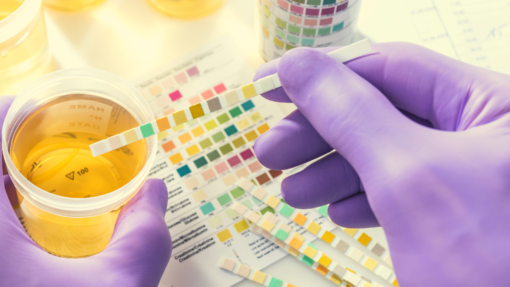
Rezero: urine samples that changed the Spanish Waste Law
For the past 5 years, our Catalonian member Rezero has been campaigning on the dangers and harmful effects of plastics on human health (besides all the harm it does to our environment). This late March, they saw their ambitions become reality through the ban on food packaging chemicals in the Spanish Waste Law.
What started as a national initiative later became a pan-EU initiative – the Plastics in the Spotlight project, carried with Rezero with Zero Waste Europe, Zero Waste Latvija (Latvia), Ekologi brez meja (Slovenia), ZERO – Associação Sistema Terrestre Sustentável (Portugal), and Za Zemiata (Bulgaria).
This project tested the urine of 52 decision-makers, media personalities, public figures, and artists across Europe for the presence of 28 hazardous chemicals, associated with diseases such as cancer and cardiovascular disease and affecting the reproductive and immune system. The participants were found to have an average of 20 out of 28 chemicals present in their bodies – solid proof that even the smallest quantities of plastics are a menace to our health and well-being; and that non-toxic, reusable packaging alternatives are the safest choices all-around for our consumption and production needs.
The past weeks have marked a massive turning point in the pursuit of a zero waste, chemicals-safe world. After 5 years of teamwork; 80 urine samples; 7-country efforts; and an infinite number of calls, meetings, and publications, the scales have now tipped in favour of eliminating bisphenol A and phthalates in the new Spanish Waste Law.
When the Congress of Deputies approved the State Law on Waste and Contaminated Soil with a ban on bisphenol A and phthalates in food packaging, Rezero saw the work of half a decade bearing tangible, impactful fruits: “Rezero is happy to have contributed to the new law regulating the ban on phthalates and bisphenol A in food packaging. It is an important step in protecting the health of people, and it has been a demand from civil society and the scientific community for years. We finally have a waste law that shows the link between the practices of packaging and design of products from the industry and the citizens’ right to health.”, recounted Rosa García, General Manager at Rezero.
The Zero Waste Europe network is naturally ecstatic by the developments in Spain, and hoping they are the starting point for similar legislation changes in other countries and at the European level. “The current EU legislation regulating food packaging is outdated and failing at its job of protecting human health across Europe.”, explained Dorota Napierska, our Policy Officer on Toxic-Free Consumption & Production. “The new Spanish Waste Law is an excellent and inspiring example of how national authorities can save their citizens from the negative effects caused by toxic chemicals, which can be – and must be – avoided”.
More updates on the fight against plastics and hazardous chemicals will come soon through the Zero Waste Europe network and its projects/coalitions – watch this space!